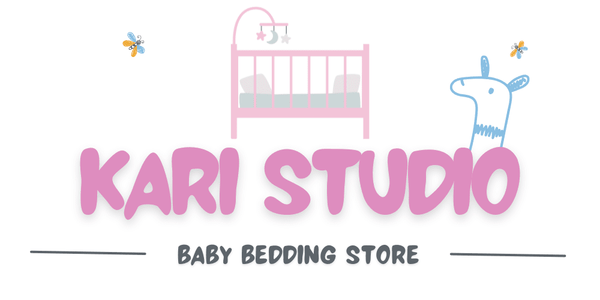Nuevas investigaciones están revelando el verdadero impacto que tienen los padres en los primeros días de vida de su bebé. Resulta que el vínculo temprano entre padre e hijo puede impulsar el desarrollo social y cognitivo del niño durante años . ¿La verdadera sorpresa? Tan solo unos momentos sencillos de contacto piel con piel o un toque suave pueden reconfigurar por completo la química cerebral de un recién nacido de maneras que perduran toda la vida.
Tabla de contenido
- La importancia del vínculo temprano entre padres y recién nacidos
- Comprender las conexiones emocionales entre padres e hijos
- Cómo las interacciones físicas mejoran las relaciones padre-hijo
- El papel de la comunicación en el fortalecimiento de los vínculos
- Ejemplos de la vida real de padres que crean vínculos con sus recién nacidos
Resumen rápido
| Llevar | Explicación |
|---|---|
| El vínculo temprano impulsa el desarrollo infantil | La participación activa del padre ayuda a establecer conexiones emocionales y neurológicas críticas que son esenciales para el crecimiento social y cognitivo. |
| El contacto físico mejora la seguridad emocional | El contacto piel con piel y las interacciones suaves liberan oxitocina, lo que fomenta el apego y reduce el estrés tanto del padre como del bebé. |
| La comunicación eficaz fortalece la confianza | Los padres pueden mejorar la inteligencia emocional de su bebé respondiendo a las señales y brindándole una comunicación multisensorial de apoyo. |
| Las actividades rutinarias crean oportunidades de unión | Las tareas cotidianas, como cambiar pañales y la hora del baño, sirven como momentos importantes para establecer conexiones emocionales profundas. |
| La presencia intencional es clave para crear vínculos | No se trata de perfección; el compromiso constante con el cuidado y la empatía construye relaciones sólidas entre los padres y sus recién nacidos. |
La importancia del vínculo temprano entre padres y recién nacidos
El vínculo afectivo temprano entre padres y recién nacidos representa un hito crucial en el desarrollo con profundas implicaciones a largo plazo para el crecimiento infantil y la dinámica familiar. Investigaciones de los Institutos Nacionales de la Salud demuestran que la interacción paterna durante los primeros meses de vida de un bebé establece conexiones neurológicas y emocionales fundamentales que impactan significativamente en su futuro desarrollo social y cognitivo.
Impacto neurológico y emocional
Cuando los padres participan activamente en el cuidado infantil temprano, desencadenan respuestas neurológicas complejas que mejoran el desarrollo cerebral y la seguridad emocional. Las interacciones físicas y emocionales entre padres y recién nacidos estimulan las vías neuronales responsables de la regulación emocional, el manejo del estrés y la inteligencia social. La presencia paterna constante ayuda a los recién nacidos a desarrollar un sentido de seguridad, previsibilidad y confianza que se convierte en la piedra angular de sus futuras relaciones.
Beneficios fisiológicos del vínculo entre padre e hijo
Más allá de las conexiones emocionales, el vínculo entre padre y recién nacido produce beneficios fisiológicos mensurables. El contacto piel con piel, el tacto suave y el cuidado receptivo desencadenan la liberación de oxitocina tanto en el padre como en el bebé. Esta respuesta neuroquímica promueve sentimientos de apego, reduce los niveles de estrés y favorece la adaptación fisiológica general del bebé al entorno externo.
 Estudios de la Asociación Americana de Psicología indican que los padres que mantienen interacciones regulares y tiernas con sus recién nacidos contribuyen significativamente al desarrollo neurológico y emocional del niño.
Estudios de la Asociación Americana de Psicología indican que los padres que mantienen interacciones regulares y tiernas con sus recién nacidos contribuyen significativamente al desarrollo neurológico y emocional del niño.
Estas interacciones tempranas sientan las bases para la inteligencia emocional futura, ayudando a los niños a desarrollar habilidades cruciales como la empatía, la regulación emocional y la comunicación interpersonal. Para los padres, este proceso de vinculación es igualmente transformador, ya que les brinda la oportunidad de establecer vínculos profundos y significativos que moldean su trayectoria como padres.
Si desea obtener más información sobre cómo crear un entorno de sueño enriquecedor que favorezca estos momentos cruciales de unión, lea nuestra guía completa sobre soluciones para el sueño del bebé .
Comprender las conexiones emocionales entre padres e hijos
Las conexiones emocionales entre padres e hijos representan un sistema de comunicación sofisticado y complejo que va mucho más allá de las simples interacciones físicas. Investigaciones realizadas por expertos en psicología del desarrollo revelan que estas conexiones son intercambios complejos y multifacéticos que moldean fundamentalmente la inteligencia emocional del bebé y su futura dinámica relacional.
El lenguaje de la sintonía emocional
La sintonía emocional entre padres e hijos se produce mediante interacciones sutiles y complejas que trascienden la comunicación verbal. Los padres desarrollan una capacidad única para interpretar las señales no verbales de sus bebés y responden con una calibración emocional precisa. Esta compleja interacción implica microexpresiones , lenguaje corporal sutil, variaciones de tono y gestos receptivos que transmiten seguridad, consuelo y comprensión. Estas interacciones ayudan a los bebés a aprender a regular sus emociones, enseñándoles a reconocer, procesar y expresar sus sentimientos eficazmente.
Fundamentos neurobiológicos de la conexión
Tras estas interacciones se esconde un notable proceso neurobiológico. Cuando los padres brindan cuidados constantes y receptivos, estimulan vías neuronales específicas en el cerebro en desarrollo de su bebé. Investigaciones neurocientíficas de la Universidad de Stanford demuestran que estas interacciones desencadenan la liberación de oxitocina y otras hormonas que fomentan el vínculo, creando así una base bioquímica para la seguridad emocional y la confianza.
Los mecanismos clave de conexión neurobiológica incluyen:
- Ritmos cardíacos sincronizados durante el contacto físico cercano
- Reflejar expresiones faciales que fomentan la comprensión emocional
- El tacto suave que regula las respuestas al estrés del bebé
- Interacciones vocales consistentes que apoyan el desarrollo del lenguaje
Al comprender estas intrincadas conexiones emocionales, los padres pueden crear experiencias de vínculo poderosas y transformadoras que fomenten el bienestar emocional de sus hijos a lo largo de su vida. Si busca ampliar su comprensión de los entornos de cuidado infantil, explore nuestra guía completa sobre cómo crear espacios de sueño enriquecedores.
Cómo las interacciones físicas mejoran las relaciones padre-hijo
Las interacciones físicas representan un mecanismo fundamental mediante el cual los padres establecen conexiones profundas y significativas con sus bebés. Investigaciones de la Academia Americana de Pediatría revelan que el contacto físico intencional y receptivo constituye una vía crucial para el desarrollo del vínculo emocional y neurológico.
Comunicación sensorial y apego
Las interacciones físicas trascienden las meras experiencias táctiles y funcionan como un sofisticado sistema de comunicación entre padres e hijos. Mediante el contacto físico , los patrones de agarre y los movimientos receptivos , los padres transmiten mensajes emocionales complejos que ayudan a los recién nacidos a desarrollar un sentido de seguridad y comprensión. Estas interacciones estimulan múltiples vías sensoriales, lo que permite a los bebés procesar información emocional, regular respuestas fisiológicas y desarrollar una confianza fundamental.
Mecanismos neurofisiológicos del tacto
Cuando los padres mantienen interacciones físicas constantes, desencadenan complejas respuestas neurofisiológicas que favorecen el desarrollo infantil. Investigaciones pediátricas de la Universidad de Stanford demuestran que el contacto físico libera hormonas cruciales como la oxitocina y reduce los niveles de cortisol, creando un entorno bioquímico propicio para el aprendizaje emocional y la reducción del estrés.
Los principales beneficios de la interacción física incluyen:
- Estimulación del desarrollo de las vías neuronales
- Regulación de la frecuencia cardíaca y la respiración del bebé
- Apoyando el funcionamiento del sistema inmunológico
- Mejorar la plasticidad neurológica
- Fomentar las habilidades de autorregulación emocional
Estas interacciones multifacéticas brindan a los padres oportunidades poderosas para comunicar amor, seguridad y apoyo emocional a través de medios no verbales.
A continuación se muestra una tabla que resume los mecanismos clave mediante los cuales las interacciones físicas entre padres e hijos apoyan el desarrollo infantil, como se describe en el artículo.
| Interacción física | Beneficio para el desarrollo | Explicación |
|---|---|---|
| Contacto piel con piel | Seguridad emocional, reducción del estrés | Libera oxitocina, fomenta el apego y reduce el cortisol. |
| Toque suave | Vinculación, regulación emocional | Promueve sentimientos de seguridad y comodidad. |
| Patrones de retención consistentes | Desarrollo de la vía neuronal | Favorece el crecimiento cerebral y la regulación emocional. |
| Reflejar expresiones faciales | Comprensión emocional | Desarrolla la empatía y las habilidades sociales. |
| Interacciones vocales (hablar/cantar) | Adquisición del lenguaje, desarrollo de la confianza | Apoya las habilidades lingüísticas tempranas y la participación social. |
Para los padres que buscan optimizar el entorno de sueño de sus bebés y apoyar estas interacciones cruciales, explore nuestra guía completa sobre cómo crear espacios de sueño enriquecedores.
El papel de la comunicación en el fortalecimiento de los vínculos
La comunicación entre padres y recién nacidos representa un proceso complejo y multidimensional que va mucho más allá del lenguaje verbal. Investigaciones realizadas por expertos en comunicación del desarrollo revelan que la comunicación abarca intercambios verbales, no verbales y emocionales que configuran fundamentalmente el desarrollo cognitivo y social del bebé.
Dinámica de la comunicación verbal y no verbal
Los padres se comunican con sus recién nacidos mediante una sofisticada gama de técnicas que van más allá del habla tradicional. La modulación del tono , el ritmo vocal , las expresiones faciales y el lenguaje corporal son canales de comunicación esenciales. Estas interacciones matizadas ayudan a los bebés a desarrollar habilidades tempranas de comprensión del lenguaje, reconocimiento emocional y capacidad de interacción social. Cada interacción vocal proporciona un andamiaje neurológico que apoya los procesos comunicativos y cognitivos emergentes del bebé.
Traducción emocional y mecanismos de respuesta
La comunicación entre padres y recién nacidos funciona como un complejo sistema de traducción emocional. Investigaciones sobre comunicación infantil realizadas en la Universidad de Yale demuestran que la comunicación receptiva ayuda a los bebés a desarrollar su inteligencia emocional al aprender a interpretar y expresar sentimientos complejos. Los padres que escuchan atentamente, responden con empatía y brindan retroalimentación emocional constante crean un entorno de comunicación seguro que apoya el desarrollo psicológico del bebé.
Las estrategias de comunicación clave para los padres incluyen:
- Usando tonos vocales suaves y mesurados
- Mantener un contacto visual constante
- Responder con prontitud a las señales del bebé
- Narrar actividades cotidianas
- Practicando técnicas de escucha activa
Estos enfoques de comunicación transforman interacciones aparentemente sencillas en experiencias de aprendizaje profundas que fomentan la confianza, la seguridad emocional y las bases cognitivas. Al comprender la comunicación como un proceso multisensorial e interactivo, los padres pueden crear intencionalmente conexiones significativas que apoyan el desarrollo integral de sus hijos.
Para los padres interesados en crear entornos óptimos que respalden estas dinámicas de comunicación cruciales, explore nuestra guía completa sobre cómo fomentar los espacios de sueño de los bebés.
Ejemplos de la vida real de padres que crean vínculos con sus recién nacidos
Las investigaciones sobre la participación parental revelan que las conexiones significativas entre padre y recién nacido surgen mediante interacciones intencionales y constantes que van más allá de las responsabilidades tradicionales de cuidado. Estos ejemplos reales demuestran el poder transformador de la participación paterna durante las primeras etapas del desarrollo infantil.
Rituales de unión cotidianos
El vínculo exitoso entre padre e hijo a menudo surge a través de actividades cotidianas aparentemente mundanas. Las rutinas de cambiar pañales , bañar y acostarse se convierten en oportunidades para una profunda conexión emocional. Los padres que abordan estos momentos con paciencia, delicadeza y atención plena crean experiencias neurológicas y emocionales poderosas. Por ejemplo, un padre que narra sus acciones mientras cambia pañales transforma una tarea rutinaria en una experiencia de aprendizaje interactiva, lo que fomenta el desarrollo del lenguaje y genera confianza.
Técnicas de cuidado receptivo
Los padres modernos están redefiniendo la participación paterna mediante la escucha activa y el cuidado receptivo . Este enfoque implica interpretar las señales del bebé, responder con empatía y crear un entorno emocional de apoyo. Los padres que practican el contacto piel con piel, masajean suavemente y mantienen un contacto visual constante desarrollan canales de comunicación intrincados que favorecen el desarrollo neurológico y emocional del bebé.
Las estrategias de vinculación clave observadas en las relaciones exitosas entre padre e hijo incluyen:
- Creando técnicas relajantes personalizadas
- Desarrollar ritmos de comunicación únicos
- Establecer patrones de interacción predecibles
- Demostrar disponibilidad emocional
- Practicar la presencia física constante
Estos ejemplos de la vida real ilustran que un vínculo eficaz tiene menos que ver con la perfección y más con la presencia constante e intencional.
La siguiente tabla destaca las actividades cotidianas comunes que los padres pueden utilizar para vincularse con sus recién nacidos y los beneficios emocionales o de desarrollo asociados con cada tarea.
| Actividad | Acciones de ejemplo | Beneficio emocional/de desarrollo |
|---|---|---|
| cambio de pañales | Narrar acciones, hacer contacto visual. | Genera confianza y apoya el desarrollo del lenguaje. |
| Hora del baño | Lavado suave, tacto calmante. | Promueve la relajación, mejora el apego. |
| Rutinas para la hora de dormir | Leer, abrazar, cantar | Establece previsibilidad, aumenta la seguridad |
| Calmante y reconfortante | Masaje suave y mecedor | Reduce el estrés infantil y fomenta el vínculo emocional. |
| Cuidado receptivo | Señales de lectura, respuesta inmediata | Fomenta la inteligencia emocional y la confianza. |
 Al abordar la paternidad como una relación activa y dinámica, los padres pueden crear conexiones profundas y duraderas con sus recién nacidos.
Al abordar la paternidad como una relación activa y dinámica, los padres pueden crear conexiones profundas y duraderas con sus recién nacidos.
Para los padres que buscan orientación adicional sobre cómo crear entornos enriquecedores que respalden estos momentos cruciales de unión, explore nuestra colección seleccionada de ideas únicas de regalos para recién nacidos .
Fortalezca el vínculo entre padre e hijo con la máxima comodidad en la habitación del bebé
Construir una conexión emocional sólida entre papás y recién nacidos comienza con rutinas diarias compartidas y espacios seguros y acogedores. Este artículo destaca la importancia de los momentos de contacto directo, como la hora de dormir, las caricias reconfortantes y el cuidado atento, para la seguridad y el desarrollo saludable de tu bebé. Pero incluso con tu plena presencia, el entorno puede ser un desafío. Si alguna vez te has preocupado por mantener a tu bebé cómodo y protegido durante esos preciosos momentos de conexión, contar con productos de guardería confiables es fundamental.

Dale a tu pequeño el comienzo perfecto eligiendo soluciones diseñadas especialmente para esos primeros momentos de conexión. Explora nuestra colección de protectores de cuna trenzados y descubre protectores de cuna suaves y transpirables que ayudan a crear el entorno seguro que tú y tu bebé necesitan para conectar de verdad. Combínalos con nuestros consejos en el artículo sobre ideas de regalos únicos y personalizados para recién nacidos para una solución completa de conexión y cuidado. Siente la tranquilidad de saber que estás apoyando el bienestar emocional de tu hijo desde el principio. ¡Actúa ahora y visita la página web de Kari Studio para transformar momentos de conexión en recuerdos imborrables!
Preguntas frecuentes
¿Cuáles son los beneficios del vínculo temprano entre padres y recién nacidos?
El vínculo afectivo temprano fomenta conexiones neurológicas y emocionales que mejoran el desarrollo cerebral, la regulación emocional y las futuras habilidades sociales de los niños. También fomenta un sentido de seguridad y confianza en el bebé, sentando las bases para futuras relaciones.
¿Cómo contribuye el contacto físico al vínculo entre padre e hijo?
El contacto físico, como el contacto piel con piel o los movimientos suaves, libera oxitocina y reduce las hormonas del estrés. Esta respuesta bioquímica favorece el desarrollo emocional, fomenta la confianza y crea un entorno enriquecedor, esencial para el crecimiento del bebé.
¿Qué papel juega la comunicación en el fortalecimiento del vínculo entre padres y recién nacidos?
La comunicación implica interacciones verbales y no verbales que ayudan a los bebés a desarrollar habilidades lingüísticas e inteligencia emocional. Los padres que se comunican con atención fomentan un entorno donde sus hijos se sienten seguros y comprendidos, lo que facilita un desarrollo emocional saludable.
¿Qué actividades cotidianas pueden ayudar a los padres a establecer vínculos con sus recién nacidos?
Las rutinas cotidianas, como cambiar pañales, bañar al bebé y acostarse, pueden servir como momentos para fortalecer su vínculo. Al abordar estas tareas con paciencia y compromiso, los padres pueden convertir el cuidado rutinario en intercambios emocionales significativos, fortaleciendo así la relación entre padre e hijo.
Recomendado
- Ideas de regalos únicos y personalizados para recién nacidos en 2025 – KariStudio
- Qué evitar al elegir un regalo para recién nacido: seguridad y practicidad – KariStudio
- Regalos de lujo para recién nacidos: ¿Qué elegir para tu bebé? – KariStudio
- Ideas de regalos de temporada para recién nacidos: Bebés de verano vs. de invierno – KariStudio
- Desarrollo cerebral infantil: Una guía para madres europeas modernas – The Zoofamily

